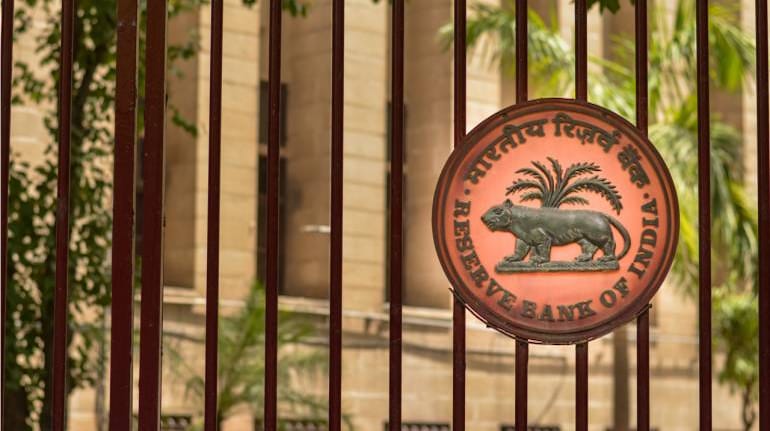



Amidst macro level events cornering the limelight, most economists appear to eulogise the Reserve Bank of India (RBI) for its successful defence of the Indian Rupee. To a certain extent, this is true; nevertheless, there are costs to the RBI’s benign actions.
In the current fiscal, according to analyses by this author, as on October 21 the RBI’s balance sheet has contracted by 6.5 percent, despite normalising economic activity. The RBI’s sacrifice of foreign reserves (excluding SDRs) to finance deepening deficit and to protect the INR has resulted in the loss of Rs 3.7 lakh-crore worth of foreign assets and gold holdings. Out of this, the RBI estimates that mark-to-market losses roughly amounted to Rs 1.8 lakh-crore, until June. Closer inspection, however, reveals that by October, the overall revaluation losses narrowed down to just over Rs 0.7-0.8 lakh-crore, when considering domestic security holdings.
Nonetheless, the central bank’s convenient circumvention of an important question pertaining to the low growth in currency in circulation (CIC) is perplexing. While the economy is expected to grow at ~6.5 percent during the current fiscal, the CIC grew by just 2.6 percent YTD. For reference, in the pre-pandemic years of FY19 and FY20, the CIC growth averaged 15.6 percent. What this means is that so far in the current fiscal, the RBI has issued just Rs. 0.8 lakh-crore worth of currency, incrementally.
The billion-dollar question is what it takes to increase the CIC, given the economy’s requirements. The fact that the CIC must be 100 percent backed-up by foreign reserves and gold, provides a lucid answer to the question. In other words, before issuing every incremental INR, the RBI’s issuing department must first procure forex holdings representing that value. This is how the RBI manages its balance sheet, with the CIC forming roughly 50 percent of the liability side, backed by a similar quantum of foreign reserves on the asset side.
However, due to an overall contraction of the RBI’s balance sheet, the CIC’s proportion has now increased to 55 percent despite recording low growth levels. Consequently, the RBI is no longer able to issue any new currency, until situation normalizes. The bank’s combined foreign and gold reserves have already contracted by over 8.4 percent, so far in the current fiscal, and further declines are anticipated.
The Rs. 0.8 lakh-crore incremental issuance, therefore, occurred not due to the central bank’s benevolence; instead, a contracting deposit account made some space for the CIC to stretch its legs, without impacting the balance sheet in real terms.
Nevertheless, over 76 percent of the RBI’s foreign reserves are now tied to the CIC, when ideally, they should be 68 percent. What that means is that the banking department needs to replenish almost Rs 3.5 lakh-crore to reach its default reserve holdings. This in turn leaves the RBI with that much less reserves to intervene in the forex market, and backstop deeper current account deficits (along with worsening net investment position).
In any case, the RBI’s revaluation account has contracted by nearly 7.5 percent, reducing its buffers to protect its balance sheet from shocks. Currently, the revaluation account occupies just 14-15 percent of the balance sheet, as compared to pre-pandemic’s 19 percent. This calls for a closer scrutiny of the contingency fund as we progress through the rest of the year.
However, in defence of the RBI’s actions, one must note that the bank is currently dealing with an indefensible situation. With a rapidly declining revaluation account, it can no longer compensate its balance sheet through incremental deposits, which until recently, were driving the balance sheet. The deposits account, thanks to falling reverse repo and allied operations, is now Rs 4 lakh-crore lower than what it was at the end of FY22. Apparently, the RBI’s reverse repo and allied obligation account has averaged just over Rs 7 lakh-crore in the current fiscal, declining by almost 39 percent.
Forgone foreign reserves also do not allow the central bank to issue any new CIC to maintain a balance sheet that is intertwined with economic expansion. A few months earlier, the problem could have been easily solved through increases in the share of domestic securities in the treasury holdings; however, at this time, such a position cannot be recommended. The dichotomy is putting the RBI in a vulnerable position and can potentially threaten systemic stability, possibly hastening deflation.
What makes the situation worse is that along with the ongoing rate transmission to existing and fresh loans, a constrained growth of base money may have long-lasting effects on credit expansion multiple, more commonly known as ‘potential multiple expansion of credit’. Given the situation, the RBI must restrict currency market interventions, and focus on building requisite buffers in the form of gold at the earliest.
At the same time, the RBI must tap into the foreign currency holdings of commercial banks in exchange for INR and replenish its non-issuing operations. In the backdrop of the United States Fed’s relentless resolve to control inflation, the situation calls for being on alert.
Discover the latest Business News, Sensex, and Nifty updates. Obtain Personal Finance insights, tax queries, and expert opinions on Moneycontrol or download the Moneycontrol App to stay updated!
Find the best of Al News in one place, specially curated for you every weekend.
Stay on top of the latest tech trends and biggest startup news.